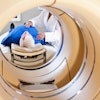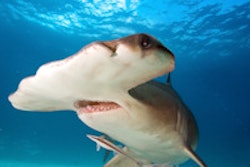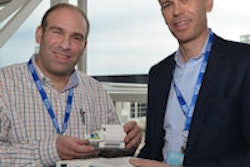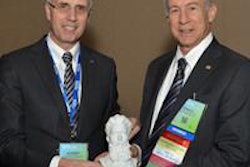Dear AuntMinnieEurope Member,
During Monday's special session on Germany at RSNA 2015, it was rather strange and unnerving to see only the first names of the key participants on their congress badges. A few years ago, it would have been "Prof. Dr. Norbert Hosten," but now it's simply "Norbert." How times have changed in radiology ...
One constant, however, is German researchers' legendary thoroughness and all-round proficiency, and unsurprisingly the presentations made in Chicago were of a high quality. Click here to find out more.
Free diving can be very dangerous because divers hold their breath for prolonged periods of time in deep waters, experiencing massive water pressure and physiological changes. What impact does this have on the heart? A group from Cologne, Germany, gave some answers at RSNA 2015. Go to our MRI Community, or click here.
One of our top articles in November was about the use of Lego models in MRI. Now we've posted a video interview with the two radiologists involved, one of whom is Dr. Erik Ranschaert, a member of AuntMinnieEurope.com's editorial advisory board. To watch the video, click here.
The opening session at the RSNA meeting tends to include a visionary and futuristic lecture, and that was certainly the case on Sunday, when Dr. Ronald Arenson did some crystal-ball gazing. Get the story here.
The Dutch have also been busy at RSNA 2015, as exemplified by new research showing nodules detected with CT at interim lung cancer screening carry more than twice the risk of nodules present at the first scan. Visit our CT Community, or click here.
For in-depth coverage of the congress and industry news, make sure you visit the dedicated RSNA 2015 section of our sister site, AuntMinnie.com.



















